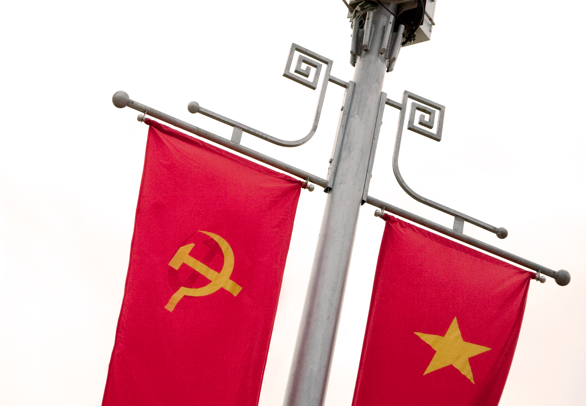The Press Plan 2025 (Quyết định số 362/QĐ-TTg ngày 03/4/2019 của Thủ tướng Chính phủ phê duyệt Quy hoạch phát triển và quản lý báo chí toàn quốc đến năm 2025) aims to restructure the press system by reducing the number of organizations eligible to have press agencies and imposing rigid quotas. While the goal is presented as optimizing the press system and its resources, the reduction in organizations is not based on the performance of newspapers but is instead a top-down decision.
In summary, only organizations at the national level are eligible to have press agencies. Provincial organizations are no longer eligible, except for units affiliated with the Communist Party of Vietnam (CPV). There are four types of organizations that can have press agencies, and each is limited to having only one. According to the new plan, there will be approximately one hundred press agencies in Vietnam.
- Party’s Central Committee (1) and provincial party units (63)
- Office of National Assembly, Supreme People’s Procuracy, Supreme People’s Court, Supreme Court, State Audit (4)
- Ministries (18) and organizations of equal level (4)
- National political-social organizations and some special associations (10)
The new policy document has removed the rights to have press agencies of (1) local government organs (2) provincial political-social organizations (3) social organizations and (4) religious organizations. These organizations are eligible to have press agencies according to the Press Law (2016), but now are degraded to only be able to have “magazine agencies” – a term that does not exist in the Press Law. The decision not only results in excessive regulation but also introduces new concepts. The table below provides a comparison between the Press Law and the Press Plan 2025 in terms of media ownership criteria.
| Organizations | Press Law | Press Plan 2025 |
|---|---|---|
| National party units | Press agencies | Press agencies |
| Provincial party units | Press agencies | Press agencies |
| Courts and National Assembly | Press agencies | Press agencies |
| Ministries and equal level | Press agencies | Press agencies |
| Local government organs | Press agencies | No press or magazine agencies (except for Ha Noi and Ho Chi Minh city can have five each) |
| Political-socio organizations – national level | Press agencies | Press organizations |
| Political-socio organizations – local level | Press agencies | Only magazine organizations |
| Social & Social-Professional organizations – national level | Press agencies | Only magazine organizations (except for Press Association and Writers Association) |
| Social & Social-Professional organizations – local level | Press agencies | Only magazine agencies |
| Religion organization – central level | Press agencies | Only magazine agencies |
| Religion organization – provincial level | Press agencies | Only magazine agencies |
| State-owned companies | Press agencies | Magazine agencies |
After three years in effect, in 2021, the Ministry of Information and Communications (MIC) reported completing the first phase of the allocation plan, with all national organizations and half of the provinces reallocating their press agencies. During this process, some notable newspapers lost their press licenses (such as Zing News and Doanh nhan Sai Gon), while others struggled to find a new governing body to maintain their press status (Phap Luat HCMC had to change its governing body from the HCMC Justice Department to the city government).
Based on these outcomes, another comprehensive planning scheme with a vision for 2030 is set to be issued to “strengthen the mainstream of information.” [10] The party-state is reasserting complete control over the press system.
